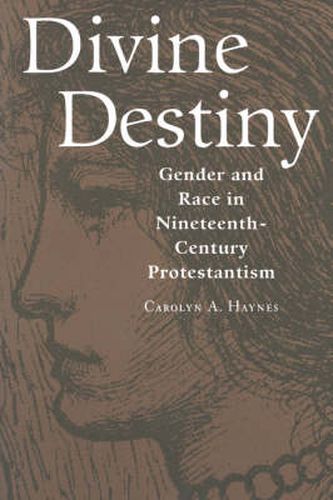Readings Newsletter
Become a Readings Member to make your shopping experience even easier.
Sign in or sign up for free!
You’re not far away from qualifying for FREE standard shipping within Australia
You’ve qualified for FREE standard shipping within Australia
The cart is loading…






This title is printed to order. This book may have been self-published. If so, we cannot guarantee the quality of the content. In the main most books will have gone through the editing process however some may not. We therefore suggest that you be aware of this before ordering this book. If in doubt check either the author or publisher’s details as we are unable to accept any returns unless they are faulty. Please contact us if you have any questions.
American culture was firmly undergirded by two dominant rhetorics during the nineteenth century: manifest destiny and domesticity. The first celebrated a divinely ordained spread of democracy, individualism, capitalism, and civilization throughout the North American continent. The second codified natural differences and duties of American men and women. While the two rhetorics were touted as universal in their application and appeal, in actuality both assumed a belief in masculine Anglo-Saxon American superiority. The triumph of the nation could be accomplished only through the concomitant removal, acculturation, or elimination of nonwhite peoples and through a careful circumscription of white women. The rhetorics not only were linked through a virulent ethnocentrism and misogyny but also were connected through their reliance on the Protestant belief system and on the church itself. Yet, curiously, despite their exclusion from the Protestant rhetorics of manifest destiny and domesticity, the nineteenth century featured a remarkable growth in the conversion of women and nonwhite men to the Protestant faith. Why did women and nonwhite men seek to join a dominant religion that in many ways set out to limit and oppress them? This book responds to that question by exploring the actual words and rhetorical choices made by some of the most progressive Protestant white, African-American, and Native American thinkers of the era: Olaudah Equiano, William Apess, Catharine Beecher, Harriet Beecher Stowe, Sojourner Truth, and Amanda Berry Smith. It argues that American Protestantism was both prohibitive and constitutive, offering its followers an expedient, acceptable but limited means for assuming social and political power and for forming a mutually empathetic, relational notion of self while at the same time foreclosing the possibility for more radical roles and social change. At Miami University of Ohio Carolyn A. Haynes is an assistant professor of interdisciplinary studies and director of Windate Writing Center.
$9.00 standard shipping within Australia
FREE standard shipping within Australia for orders over $100.00
Express & International shipping calculated at checkout
This title is printed to order. This book may have been self-published. If so, we cannot guarantee the quality of the content. In the main most books will have gone through the editing process however some may not. We therefore suggest that you be aware of this before ordering this book. If in doubt check either the author or publisher’s details as we are unable to accept any returns unless they are faulty. Please contact us if you have any questions.
American culture was firmly undergirded by two dominant rhetorics during the nineteenth century: manifest destiny and domesticity. The first celebrated a divinely ordained spread of democracy, individualism, capitalism, and civilization throughout the North American continent. The second codified natural differences and duties of American men and women. While the two rhetorics were touted as universal in their application and appeal, in actuality both assumed a belief in masculine Anglo-Saxon American superiority. The triumph of the nation could be accomplished only through the concomitant removal, acculturation, or elimination of nonwhite peoples and through a careful circumscription of white women. The rhetorics not only were linked through a virulent ethnocentrism and misogyny but also were connected through their reliance on the Protestant belief system and on the church itself. Yet, curiously, despite their exclusion from the Protestant rhetorics of manifest destiny and domesticity, the nineteenth century featured a remarkable growth in the conversion of women and nonwhite men to the Protestant faith. Why did women and nonwhite men seek to join a dominant religion that in many ways set out to limit and oppress them? This book responds to that question by exploring the actual words and rhetorical choices made by some of the most progressive Protestant white, African-American, and Native American thinkers of the era: Olaudah Equiano, William Apess, Catharine Beecher, Harriet Beecher Stowe, Sojourner Truth, and Amanda Berry Smith. It argues that American Protestantism was both prohibitive and constitutive, offering its followers an expedient, acceptable but limited means for assuming social and political power and for forming a mutually empathetic, relational notion of self while at the same time foreclosing the possibility for more radical roles and social change. At Miami University of Ohio Carolyn A. Haynes is an assistant professor of interdisciplinary studies and director of Windate Writing Center.